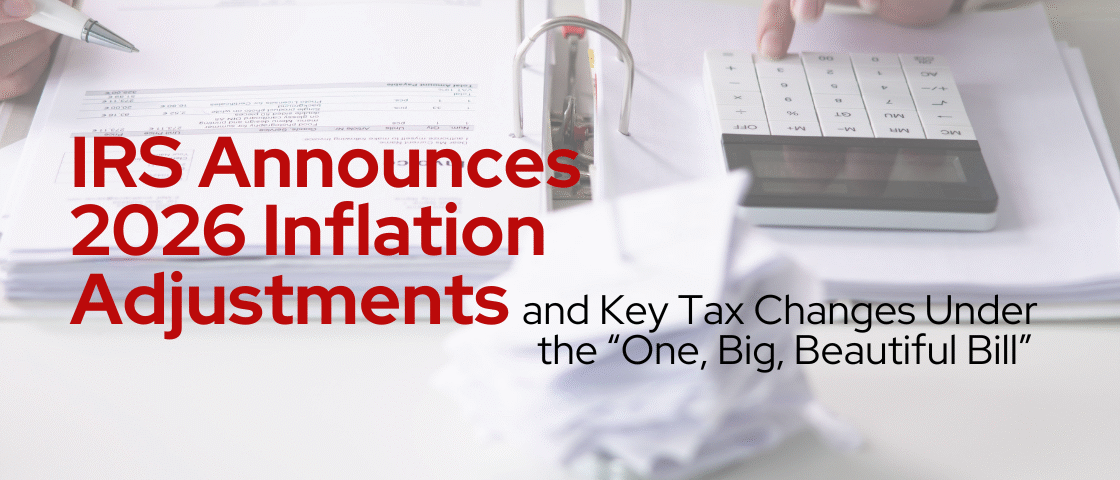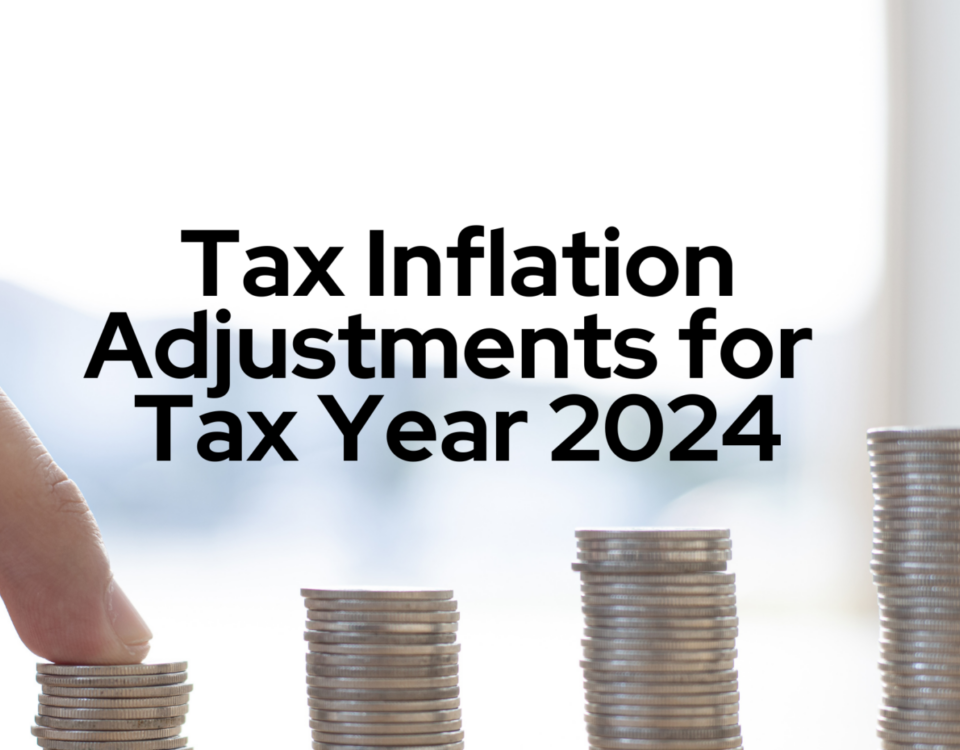
Autumn Budget Reset
September 10, 2025
The Work Opportunity Tax Credit
November 12, 2025October 9, 2025 — The IRS has released the 2026 inflation adjustments for more than 60 tax provisions, including updates to tax brackets, deductions, and credits. These changes—outlined in Revenue Procedure 2025-32—reflect both annual inflation adjustments and amendments introduced through the One, Big, Beautiful Bill (OBBB).
While these annual adjustments are designed to keep pace with inflation, the updates under the One, Big, Beautiful Bill bring additional changes—particularly for employers, families, and estates. Now is the time to review your 2025 and 2026 tax planning strategies to make the most of available deductions and credits.
Below is a summary of the most notable updates that will affect 2026 tax filings (returns filed in 2027).
Standard Deduction Increases Again
The standard deduction continues to rise:
| Filing Status | 2025 (Under OBBB) | 2026 (Under OBBB) |
|---|---|---|
| Single / Married Filing Separately | $15,750 | $16,100 |
| Married Filing Jointly | $31,500 | $32,200 |
| Head of Household | $23,625 | $24,150 |
2026 Income Tax Brackets
The top tax rate remains at 37% for single filers earning more than $640,600 and married couples earning more than $768,700. The remaining brackets are:
- 35% — over $256,225 ($512,450 for joint filers)
- 32% — over $201,775 ($403,550 for joint filers)
- 24% — over $105,700 ($211,400 for joint filers)
- 22% — over $50,400 ($100,800 for joint filers)
- 12% — over $12,400 ($24,800 for joint filers)
- 10% — up to $12,400 ($24,800 for joint filers)
Estate and Gift Tax Adjustments
- Estate Tax Exemption: Rises to $15 million (up from $13.99 million in 2025).
- Annual Gift Exclusion: Remains at $19,000 per recipient. Gifts to a non-citizen spouse increase to $194,000.
Adoption Credit and Family Benefits
- Adoption Credit: Increases to a maximum of $17,670 (up from $17,280).
- Employer-Provided Childcare Credit: Expanded under OBBB—employers can now claim up to $500,000 in credit, or $600,000 if classified as an eligible small business.
Other Key Adjustments
- Alternative Minimum Tax (AMT):
Exemption for single filers increases to $90,100 (phasing out at $500,000). For married couples filing jointly, the exemption is $140,200, phasing out at $1,000,000. - Earned Income Tax Credit (EITC):
The maximum EITC for taxpayers with three or more children increases to $8,231 (up from $8,046). - Transportation Fringe Benefit:
The monthly limit for parking or transit benefits increases to $340. - Health Flexible Spending Accounts (FSA):
Employees can now contribute up to $3,400, with a carryover limit of $680. - Medical Savings Accounts (MSA):
- Self-only coverage: Deductible between $2,900 and $4,400, with an out-of-pocket cap of $5,850.
- Family coverage: Deductible between $5,850 and $8,750, with a cap of $10,700.
- Foreign Earned Income Exclusion:
Increases to $132,900 (from $130,000 in 2025).
Items Unchanged by Inflation
Certain provisions remain frozen under the law:
- Personal Exemptions: Continue at $0, made permanent by the OBBB.
- Itemized Deduction Limits: The prior suspension of limits remains permanent, though a cap applies to taxpayers in the 37% bracket.
- Lifetime Learning Credit: Income phase-out thresholds stay at $80,000–$90,000 for individuals ($160,000–$180,000 for joint filers).
Stay Informed and Plan Ahead
At Anderson, Adkins & Crawford, CPAs, we stay ahead of every IRS update, including the 2026 inflation adjustments, so you don’t have to.
If you have questions about how these changes may affect your tax strategy, estate planning, or employee benefits, our team is here to help.
706-288-2000
info@augustacpas.com
www.augustacpas.com




